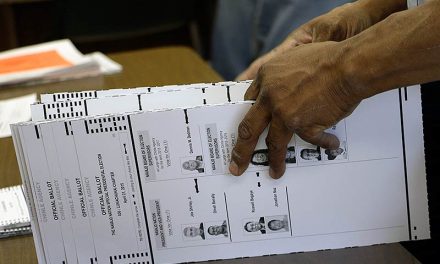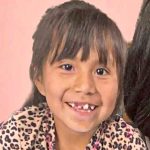
Teesto family say death of loved one linked to vaccine
CH’ÍNÍLĮ́
His condition deteriorated waiting more than eight hours for the ambulance. When the emergency medical technicians finally arrived that evening, they performed CPR, but he died.
Randolph H. Dickson, 56, passed away outside his mother Betty Dickson’s T’iis Tó home in late July.
Betty, 78, said she believes her son’s death is linked to the COVID-19 vaccine because he was just fine before he received his first shot in February.
“There was nothing wrong with him,” Dickson said in a full interview t’áá Dinék’ehjí. “It was because of the COVID-19 vaccine. If he didn’t receive it, he probably wouldn’t have died.”
Vaccine-related fatality?
Even though scientific data shows that the COVID-19 vaccines are overwhelmingly safe and effective and have reduced hospitalizations and deaths, Dickson believes her son died following vaccination.
She attributes his death to abdominal pain and distension – bloating and swelling in the belly area.
“I know it’s because of the vaccine,” she said.
While scientists have not confirmed that COVID-19 vaccines can cause abdominal pain and distension, Betty feels confident the shot was the trigger.
Millions of people have already received the COVID-19 vaccines and the overwhelming majority have not reported any serious health problems.
The Centers for Disease Control and Prevention reported on Dec. 7 that about 236.4 million people have received at least one dose of a COVID-19 vaccine, including 199.7 million people who have been fully vaccinated by Johnson & Johnson’s single-dose vaccine or the two-dose series made by Pfizer-BioNTech and Moderna.
The CDC also reported about 47.9 million people received an additional vaccine dose since Aug. 13, the day after the Food and Drug Administration opened eligibility for third shots for some people with weakened immune systems.
This figure includes people who’ve gotten a booster vaccine dose, which the FDA on Sept. 22 authorized Pfizer-BioNTech’s Comirnaty for people age 65 and older.
Side effects such as injection site pain, tiredness, headache, muscle pain, chills, joint pain, fever, among a list of others, appear more likely after the second dose and last about a day or two.
Myocarditis (inflammation of the heart muscle) and pericarditis (inflammation of the lining outside the heart) have occurred in some people who have received the vaccine made by Pfizer-BioNTech and Moderna.
Both pharmaceutical companies report that its vaccines are associated with a risk of the diseases in younger recipients of both vaccines. But these side effects are rare.
Even in the worst-case scenarios of post-vaccination diseases modeled by the FDA, the benefits of vaccination still outweigh the risks.
The FDA requires vaccination providers to report any death after COVID-19 vaccination to the Vaccine Adverse Event Reporting System, or VARES, a federally managed database of self-reported vaccine side effects.
When these vaccine-related death reports are received, the FDA and the Centers for Disease Control and Prevention review death certificates, autopsies, and medical records to understand what happened.
There are reports of vaccine-related death reports in VARES, but because anyone, such as physicians, nurses, and patients, can submit cases, the reports are unverified or may be inaccurate, according to the CDC.
Between December 2020 and July 19, 2021, VARES received 6,207 reports of death among people who got the vaccine.
But this does not mean the COVID-19 vaccine caused the deaths. In fact, VARES reports adverse events such as abdominal discomfort, distension, operation, pain, and abdominal tenderness with the COVID-19 vaccines made by Pfizer-BioNTech, Moderna, and Janssen.
Symptoms and signs
Abdominal bloating and distension can develop for multiple reasons, including food intolerances, a previous infection that perturbed the intestinal microbiota, disordered visceral sensation (pain), delayed intestinal transit, or an abnormal viscerosomatic reflux (belly pouching out), according to the Mayo Clinic’s Division of Gastroenterology and Hepatology in Jacksonville, Florida.
Betty said Randolph, who went by “Randy,” had liver issues since 2009 and later developed gastrointestinal issues but kept up with his doctor’s appointments for that.
When the COVID-19 vaccine was given to the public in the American mass vaccination campaign earlier this year, Betty and Randy got their first shot on Feb. 5.
“We got vaccinated,” Betty explained, adding that she declined the shot for her daughter with a disability. “We were told to come back for our second dose, so we went back on March 5.
“When we got there, my son (Randy) said he didn’t want the second shot. He said he was afraid to get the shot,” she said. “I told him it’s OK. So, May through early July, his stomach area was larger than normal. He kept going to the doctor’s office where he’d get told, ‘There’s nothing wrong with you.’”
Worried about her son, Betty started questioning him: “What kind of physician do you have? Haven’t they seen a person with abdominal distension? Tell them your abdomen is abnormally swollen outward. Tell them to send you to specialty care in Phoenix.”
“He’d be OK one day and in pain the next day,” Betty explained. “This was the cycle.”
On Fourth of July, Randy collapsed outside his mother’s home. No one was home. He regained consciousness when his dog began licking his face.
“Randy didn’t say anything,” she said. “After that, he went to another doctor’s appointment in Flagstaff. He came back saying he has another appointment in Winslow on July 20. He went to that appointment and came back saying he got a second dose of the COVID-19 vaccine.
“I said, ‘I told you no. Why did you do that? You have health issues,’” Betty said.
Awaiting ambulance
A couple days passed after Randy returned from his appointment in Winslow. That Wednesday night Randy experienced severe abdominal pain. The following morning, Betty called for an ambulance response to her home.
Betty said she tried to call local emergency call numbers, but no one answered them.
When she called the Little Colorado Medical Center, the receptionist denied her request for ambulance service and told her to call the Winslow Police Department instead.
“They (Winslow PD) answered but they hung up,” Dickson said. “No one spoke to me.”
A police officer that evening called her to ask if she still needed ambulance service. Frustrated and angry, she shouted at the officer for not responding to her calls.
“Later the officer called me back saying an ambulance is on its way,” she said. “I started getting ready. On his way outside, he collapsed and was trying to breathe. I called my young son for help. He came over and picked him up and put him on the couch.
“When the ambulance arrived, they tried doing CPR – nothing,” Betty said. “Around 7:27 p.m. he was gone. We tried hard. It was because of the COVID-19 vaccine. He was scared of the vaccine.
“Yet when we go to the clinic or to the hospital, we get told, ‘You need a COVID-19 vaccine shot,’” she added.
Betty said her son’s case is now under investigation, which will take five months to complete.
Randy’s close friend, Emerson Joe, who goes by “Nii Nee,” from Be’ek’id Baa ‘Ahoodzání, also believes Randy’s death is linked to the COVID-19 vaccine.
“We believe his doctor forced (the vaccine) on him,” said Nii Nee, who’s helping Betty go about an investigation and research. “So, we have an investigation going on this ‘wrongful death,’ we’re calling it. It’s causing damages and irreparable injury.
“His family’s still in mourning. Randy was my brother and my very close friend,” said Nii Nee, an anti-vaxxer.
As a public service, the Navajo Times is making all coverage of the coronavirus pandemic fully available on its website. Please support the Times by subscribing.
How to protect yourself and others.
Why masks work. Which masks are best.
Resources for coronavirus assistance








 Highway 264,
Highway 264, I-40, WB @ Winslow
I-40, WB @ Winslow